Breast Reconstruction in Abu Dhabi
Search and Compare the Best Clinics and Doctors at the Lowest Prices for Breast Reconstruction in Abu Dhabi

Find the best clinics for Breast Reconstruction in Abu Dhabi
With Medijump you can browse 4 facilities offering Breast Reconstruction procedures in Abu Dhabi. The cheapest price available is $7,197 in Dubai
Breast Reconstruction in United Arab Emirates
Price: $ 7,197
Breast Reconstruction in Dubai
Price: $ 7,197
Breast Reconstruction in Abu Dhabi
Price: $ 8,364
India offers the best prices Worldwide
Price: $ 477
From 136 verified reviews
Junaid Tehseen, 22 September 2020
Visited recently but I must say I experienced a true 5 star experience which I have never expected in a Hospital ,, I needed an assistant, Mr Shady Soleiman one of the manager in hospital met me assisted me with every thing and made my life so easy in a very difficult situation Thank you and every one
From 37 verified reviews
Mcjaydele Mclaine, 18 September 2020
I had a very positive experience with all of the Nurses and staff at Ahalia Hospital-Mussafah. I highly recommend Dr. Saumya my gynecologists she is very professional and amazing!
From 65 verified reviews
Mutasim Goraish, 06 September 2020
It's a good place and number one for the medical clinic in JCC it's like ahotea Clinic 😀
Al Salama Hospital, located in Al Zahiyah, Abu Dhabi, United Arab Emirates offers patients Breast Reconstruction procedures among its total of 98 available procedures, across 16 different specialties. The cost of a Breast Reconstruction procedure starts from $11,199, whilst the national average price is approximately $11,171. There are many specialists available at the Hospital, with 10 in total, and they are not accredited by any recognized accreditations institutes
- Home
- United Arab Emirates
- Abu Dhabi
Compare Before & After Photos of _procedure_photos.phpBreast Reconstruction
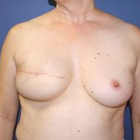
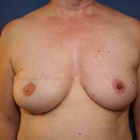
Front view
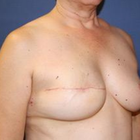
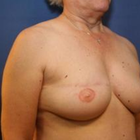
Half-side view
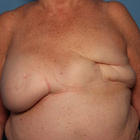
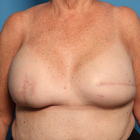
Front view
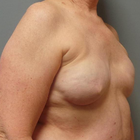
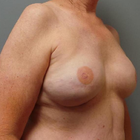
Half-side view
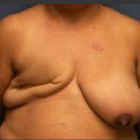
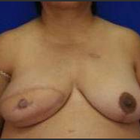
Front view
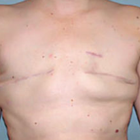
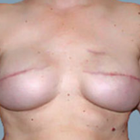
Front view
WHY US?
At Medijump, we're making medical easy. You can search, compare, discuss, and book your medical all in one place. We open the door to the best medical providers worldwide, saving you time and energy along the way, and it's all for FREE, no hidden fees, and no price markups guaranteed. So what are you waiting for?

Free

Best Price

Widest Selection

Risk-Free
What you need to know about Breast Reconstruction in Abu Dhabi
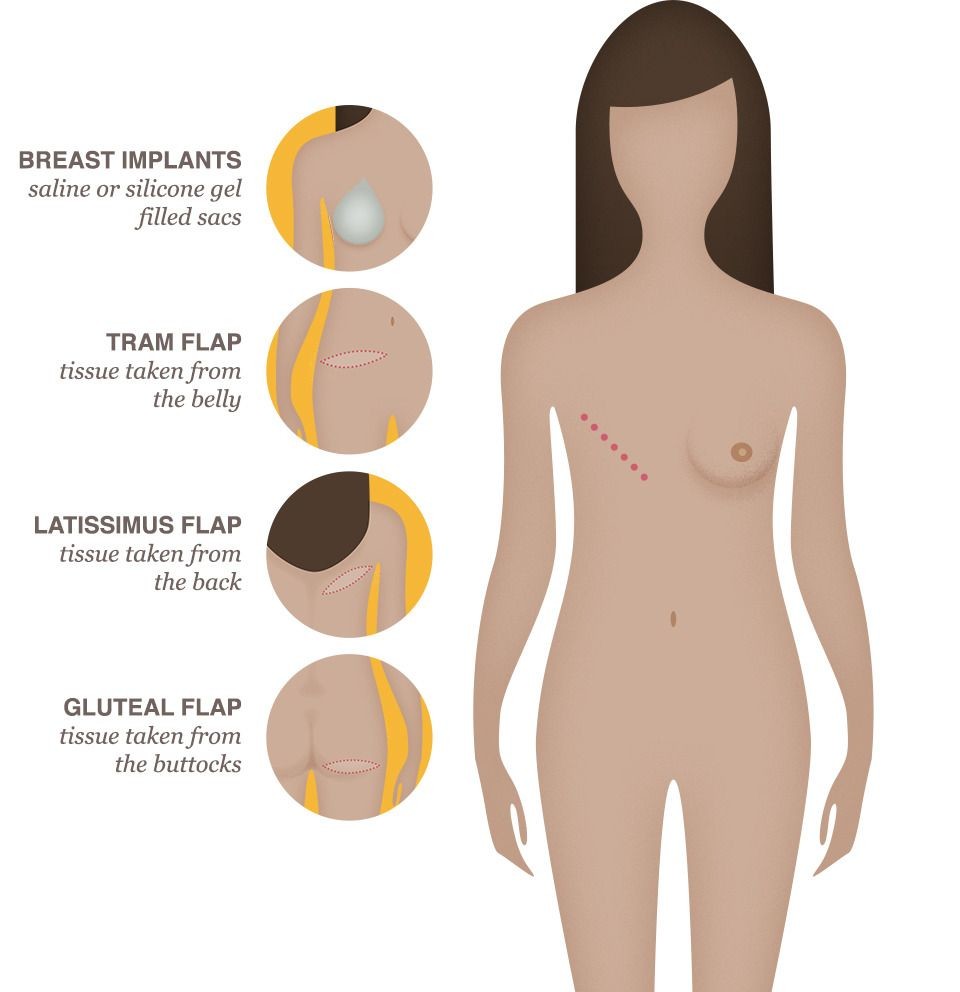
Breast reconstruction is a significant surgery undertaken to rejuvenate the physical form of a woman's chest after losing one or both breasts to cancer or another disease. In Abu Dhabi, medical centres are well-equipped with top-tier talent in plastic surgery to facilitate this intricate procedure. Every woman's journey is different, and her treatment plan is personalized, considering her unique circumstances and needs.
It's heartening to know that breast cancer treatments like chemotherapy or radiation therapy aren't impeded by reconstruction. Moreover, this surgery doesn't spike the risk of cancer coming back. Undeniably, breast reconstruction is a major surgery with inherent risks, including chances of infection, complications with wound healing, and potential dilemmas related to implants.
What is the cost of Breast Reconstruction in Abu Dhabi?
Undergoing surgery like Breast Reconstruction brings along a financial commitment. The expense varies extensively, depending on many factors like the complexity of the procedure, the medical professional performing the surgery, the hospital's facility, and the region, amongst others. Generally, the cost might range between $15,000 to $50,000, including multiple surgeries or intricate techniques within this estimate.
Thankfully, in many cases, insurance plans cover such surgical procedures, especially given mandates like the Women's Health and Cancer Rights Act of 1998 in the U.S. Still, out-of-pocket expenses associated with co-payment or deductibles can add up. It's recommended to navigate these aspects with your insurance provider and your chosen healthcare facility in Abu Dhabi.
What does a Breast Reconstruction Procedure Involve?
Breast reconstruction generally happens in stages, starting with the most complex first, which may either occur at the same time as the mastectomy or later, based on the individual’s specific health conditions or treatment plan.
Two main techniques are employed in breast reconstruction. One is the use of an implant, saline, or silicone to recreate the breast shape. Two, autologous or flap reconstruction where tissue from the patient’s body like the abdomen or thigh is relocated to recreate the breast shape. The method selected is dependent on individual factors like the patient’s health, personal choice, cancer type, and stage.
After the primary surgery and post an adequate healing period, the surgeon performs a second procedure to recreate the nipple and areola. Later, to give it a natural look, the nipple-areola complex is tattooed. Remember that although it is a common procedure, complications might arise involving reaction to anaesthesia, bleeding, infection, poor healing or the need for further interventions.
How Long Should I Stay in Abu Dhabi for a Breast Reconstruction Procedure?
Post-breast reconstruction surgery, patients typically stay in the hospital for two to five days. However, if the reconstruction was done immediately after the mastectomy, the stay could extend from three to six days.
Overall, a patient should expect to remain in Abu Dhabi for approximately two weeks post-surgery. This allows enough time for necessary follow-ups and to address any complications, if they arise. As with any major surgical procedure, do not hasten the healing process.
What's the Recovery Time for Breast Reconstruction Procedures in Abu Dhabi?
The recovery timeframe for breast reconstruction procedures in Abu Dhabi varies from patient to patient. Generally, for implant-based procedures, patients may take about four to six weeks to recuperate before they return to normal routines. For more complex autologous techniques, particularly those using abdominal tissue, patients might require six to eight weeks for recovery.
Recovering patients need to temper their activities during this period. Avoid lifting heavy objects and defer strenuous exercise until your physician gives a clear signal. Medical assistance should be promptly sought if any discomforting symptoms like chronic pain, redness or swelling surface.
What's the Success Rate of Breast Reconstruction Procedures in Abu Dhabi?
Medical success cannot just be measured in terms of complication-free postoperative progress or longevity of implants used in breast reconstruction. Patient satisfaction with their surgery, their psychological well-being following the operation, their perception of body image, and their quality of life post-surgery are equally important factors to consider. Studies indicate that between 85% to 90% of women who have undergone breast reconstruction are satisfied with the long-term results.
In Abu Dhabi, dedicated hospitals and healthcare facilities strive to offer high-quality treatment, ensuring the best possible surgical outcomes using progressive technology and experienced professionals. Still, everyone's response to surgery varies, and outcomes depend on factors such as overall health, age, body type, and compliance with surgical advice.
Are there Alternatives to Breast Reconstruction Procedures in Abu Dhabi?
Indeed, there are alternatives to breast reconstruction in Abu Dhabi. The journey of every woman is unique and how she chooses to deal with the loss of a breast, or both, is a highly personal decision. Alternatives include:
- Breast Prostheses or Forms: They are silicone forms that imitate the appearance and feel of natural breast tissue. They come in diverse sizes, shapes and colours to closely match the woman's skin tone.
- Flat Closure: In this method, the surgeons sew up the chest wound smoothly, without constructing a breast mound. This option appeals to women who choose not to have more surgeries or body implants.
- Opting not to undergo reconstruction at all, also termed as "going flat: This method exhibits the woman's choice to live comfortably with her new body shape without artificial substitutes or further surgeries. It is a fully personal decision deserving respect and support.
Each of these options has pros and cons, and the choice depends on the woman’s personal preference, health status, lifestyle, and perception of her body. Regardless of the choice, it’s important to regularly monitor breast health and engage in practices that promote overall wellness.
What Should You Expect Before and After the Breast Reconstruction Procedure?
Before the surgery, comprehensive discussions with the surgeon will take place to understand treatment objectives, outcomes, and possible complications. Preoperative tests, lifestyle modifications, and nutritional advice may form a part of the preparatory process.
Postoperative care is equally important: discomfort, swelling, and bruising are normal and subside over time. Pain management strategies will be provided to help you manage discomfort effectively. Your surgeon will provide personalised guidance on caring for your surgical site, usage of medications, and physical activities.
What sort of Aftercare is Required for Breast Reconstruction Procedures in Abu Dhabi?
The following points should be considered post-operation:
- Follow the instructions given by your doctor and take your medicines as and when prescribed.
- Consult a nutritionist for a diet plan. A healthy diet helps you recover faster.
- Do not wear a padded or underwire bra until allowed by your doctor.
- Use surgical bras in the early few days after the surgery.
- Avoid excessive unnecessary movement of your breasts.
- Do not lift heavy objects and children - it could stretch on your stitches.
- Change your bandage whenever it gets dirty. Germs can cause infection.
- Do not take a bath when the bandages are still intact. A wet bandage can also be the cause of infection.
- Abstain from sexual activity for at least 6 weeks.
- Take rest - give yourself time to recover.
How Do I Prevent Cancer from Recurring?
Preventing cancer recurrence largely revolves around a balanced, healthy lifestyle coupled with regular medical check-ups. Regular exercise, maintaining a healthy weight, and eating nutritiously can contribute to cancer prevention. Smoke cessation and limiting exposure to secondhand smoke are crucial for both prevention and postoperative recovery.
Regular breast self-examinations, as well as mammograms and follow-up visits, are critical for early detection of any recurrence. Stress management techniques like yoga, meditation, and spending time in nature can also play an essential role in overall health.
Your medical team in Abu Dhabi is there to support you, offering advice tailored to your individual health status and medical history. Remember, proactive health checks are key to maintaining overall health and preventing the recurrence of diseases like cancer.
What is the ideal time to have Breast Reconstruction surgery after a Mastectomy in Abu Dhabi?
The decision regarding when to have Breast Reconstruction following a Mastectomy in Abu Dhabi is largely based on the individual's health status, treatment plan, personal preferences, and discussions with the oncology team. Breast reconstruction can be done at the time of mastectomy (immediate reconstruction) or at a later date (delayed reconstruction). Immediate reconstruction might offer psychological benefits and less overall surgery since both procedures are done together. Yet, if additional treatments such as radiation therapy are required post-mastectomy, opting for delayed reconstruction could be advisable to avoid risks posed by radiation to the new construct.
Remember that deciding on the timing of breast reconstruction is a personal choice and should be made in consultation with your healthcare providers. They can provide specific guidance based on your health condition and treatment plan.
How Will Breast Reconstruction in Abu Dhabi Impact My Routine Mammograms and Breast Cancer Detection?
Breast reconstruction surgery may impact the way routine breast cancer screenings are conducted. After a mastectomy with or without reconstruction, women usually don't need routine screening mammograms on the treated side since all breast tissue has been removed. However, they would need routine mammograms for the untreated breasts.
If you've had reconstruction using your own body tissue, your surgeon or oncologist will guide you on whether or not you'll require mammograms on the reconstructed breast. Remember, mammograms can still be performed on reconstructed breasts, and self-breast exams should be a regular part of your health routine.
Whilst the information presented here has been accurately sourced and verified by a medical professional for its accuracy, it is still advised to consult with your doctor before pursuing a medical treatment at one of the listed medical providers
No Time?
Tell us what you're looking for and we'll reachout to the top clinics all at once
Enquire Now

Popular Procedures in Abu Dhabi
Prices Start From $497

Prices Start From $208

Prices Start From $834

Prices Start From $500

Prices Start From $93

Prices Start From $85

Recommended Medical Centers in Abu Dhabi for Breast Reconstruction

- Interpreter services
- Translation service
- Religious facilities
- Medical records transfer
- Medical travel insurance
- Health insurance coordination
- TV in the room
- Safe in the room
- Phone in the room
- Private rooms for patients available

- Interpreter services
- Translation service
- Religious facilities
- Medical records transfer
- Medical travel insurance
- Health insurance coordination
- TV in the room
- Safe in the room
- Phone in the room
- Private rooms for patients available

- Interpreter services
- Translation service
- Religious facilities
- Medical records transfer
- Medical travel insurance
- Health insurance coordination
- TV in the room
- Safe in the room
- Phone in the room
- Private rooms for patients available

- Interpreter services
- Translation service
- Religious facilities
- Medical records transfer
- Medical travel insurance
- Health insurance coordination
- TV in the room
- Safe in the room
- Phone in the room
- Private rooms for patients available

- Interpreter services
- Translation service
- Religious facilities
- Medical records transfer
- Medical travel insurance
- Health insurance coordination
- TV in the room
- Safe in the room
- Phone in the room
- Private rooms for patients available

- Interpreter services
- Translation service
- Religious facilities
- Medical records transfer
- Medical travel insurance
- Health insurance coordination
- TV in the room
- Safe in the room
- Phone in the room
- Private rooms for patients available
Breast Reconstruction in and around Abu Dhabi
About Abu Dhabi
Abu Dhabi is the capital city of the United Arab Emirates and the richest city in the country due to its oil fields. Abu Dhabi is an advanced but conservative cosmopolitan city. In 2018, the city was ranked as the safest city in the world with the lowest crime index of more than 300 cities.
Culture, adventures, shopping malls, to coastal beauty; Abu Dhabi has a lot to offer that will leave anyone in awe. The city is filled with opulent architecture, making the skyline of Abu Dhabi a captivating view.
Abu Dhabi is now developing to be the region’s leading medical tourism destination. The government is working continuously to establish a world-class healthcare system. The city targets patients from other Gulf Cooperation Council (GCC) Countries, Russia, China, and other parts of the world. Attracting top-quality doctors and a range of specialist services, Abu Dhabi focuses its procedures on cardiology, oncology, and executive screenings. A total of 16 public and private hospitals in Abu Dhabi offer a wide range of medical treatment with quality care. Cleveland Clinic Abu Dhabi, Ahalia Hospital Musafahl, and Burjeel Hospital are among the highest-regarded medical facilities in the city. The city attracts many medical tourists for the following reasons.
- Medical facilities with the highest standards and international accreditations.
- Treatment using cutting-edge technology.
- Medical interpreters who speak a range of languages.
- The best hospitality, at the hospital, and throughout the city.
Popular Areas in Abu Dhabi
With a beautiful mixture of ultramodern architecture and Islamic traditions, Abu Dhabi is packed with amazing attractions and exhilarating adventure.
- Sheikh Zayed Grand Mosque is the United Arab Emirates’ largest place of worship that attracts millions of tourists each year. The mosque is an architectural wonder, mesmerizing even to the little details. Tourists can choose to get a free one-hour guided tour to get the best insight into the religion and culture that surrounds the mosque.
- Louvre Abu Dhabi is an art and civilization museum that has been open since 2017. The museum is showcasing artworks from around the world. Apart from the artwork, the architecture of the museum is also breathtaking with a web-patterned dome that allows sunshine to filter through.
- Al-Ain Oasis is a UNESCO World Heritage Site. The oasis has only been open to the public recently. It is full of palms and mango trees. Al-Ain Oasis is home to a 3000-year-old falaj irrigation system, the oasis provides an insight into the history of Abu Dhabi inhabitants.
- Ferrari World is the perfect place for tourists who want to celebrate all things, Ferrari. People come to this indoor theme park to experience Formula Rossa, the world’s fastest roller coaster.
- Abu Dhabi Corniche is a beautiful clean beach with great views of turquoise waters and Abu Dhabi skyline that will not disappoint. Tourists can enjoy a day under the sun lounging on the beach, walk along Corniche Road, or admire the sunset.
Weather and Climate in Abu Dhabi
Abu Dhabi has a subtropical climate. The city enjoys sunny skies and hot temperatures throughout the year. Summer starts from May to September and the average temperature ranges between 38–42°C. During the hottest days, the temperature can get as high as 48°C. Winter starts from December to February, the average temperature is around 13-29°C. Rain mainly falls in winter.
The best time to visit Abu Dhabi is from November to April when the temperature is cooler and more pleasant.
Despite the heat in the summer, it is advised to always wear modest clothing as the locals do not welcome revealing or tight clothing. Lightweight and comfortable clothing are suitable most of the year.
Getting Around in Abu Dhabi
Abu Dhabi International Airport serves more than 30 airlines that connect the city to more than 60 countries in the world. Etihad Airways dominates the airport terminal spaces. Abu Dhabi International Airport mainly serves major airlines, although budget airlines such as Airblue Limited and IndiGo also operate flights.
Tourists can choose the airport taxis, buses, or hire a car to get to their destinations from the airport. Airport taxis cost around 75AED to 85AED for a trip to the city center. If you want to take the airport bus, purchase a Hafilat card from the vending machine at the airport terminal bus stop.
There are many ways to get around Abu Dhabi. Taxis are relatively cheap and metered; tourists can flag down the taxis or order through a call center. Abu Dhabi also has a city bus that operates on 14 routes between 6.00 am to 11.00 pm, most fares are 2AED. Hiring a car can be a good way of getting to many destinations as it offers more flexibility. If you’re in Corniche or Yas Island, hiring a bike is the best choice to explore these Islands.
The ever-changing street names and numbering system can be confusing, so it is advisable to describe the landmark you are looking for.
Tourist Visas in Abu Dhabi
Citizens of 60 countries can get a free entry visa (30 or 90 days depending on the country) upon arrival. Gulf Cooperation Council (GCC) citizens do not require a visa to enter Abu Dhabi. Citizens of other countries need to apply for a visa before entering Abu Dhabi through the nearest UAE embassy.
Tourists flying with Etihad Airways to Abu Dhabi International Airport can request a visa arrangement. All visitors are required to hold a passport valid for at least 6 months.
Additional Information
- Local Currency: The local currency is the United Arab Emirates dirham or Emirati Dirham (AED). 1 USD gets you around 3.7 AED. The notes are written in Arabic letters.
- Money & Payments: ATMs and currency exchanges are available across the city. Hotels, restaurants, and shops accept credit cards, debit cards, and cash. Tipping is common, but not expected. Tipping a hotel and restaurant staff is at your discretion. Many high-end restaurants may add a service charge of around 10% and a tourism levy of around 6%.
- Local Language: Arabic is the official language, but English is widely spoken especially in the city center. Road and shop signs are written in Arabic and English.
- Local Culture and Religion: The culture in Abu Dhabi is deeply rooted in Arabia’s Islamic Tradition. Islam is the official religion but people can freely practice their religion as long as they don’t interfere with Islam.
- Public Holidays: Ramadhan is hugely celebrated with the biggest festivals and the city is beautifully decorated. It is important to remember that during Ramadan, drinking, eating, and smoking at fasting hours (daylight) is illegal. Nightclubs are closed for the whole month. Other public holidays are the Islamic New Year, the Prophet’s Birthday, the King’s Coronation Day, Diwali, and Chinese New Year.
Popular Searches
- Plastic Surgery in Thailand
- Dental Implants in Thailand
- Hair Transplant in Thailand
- Breast Augmentation Thailand
- Gastric Sleeve in Thailand
- Gender Reassignment Surgery in Thailand
- Laser Hair Removal in Bangkok
- Botox in Bangkok
- Dermatology in Bangkok
- Breast Augmentation in Bangkok
- Coolsculpting in Bangkok
- Veneers in Turkey
- Hair Transplant in Turkey
- Rhinoplasty in Turkey
- Stem Cell Therapy in Mexico
- Rhinoplasty in Mexico
- Liposuction in Mexico
- Coolsculpting in Tijuana
- Rhinoplasty in Korea
- Scar Removal in Korea
- Gastric Sleeve in Turkey
- Bone Marrow Transplant in India
- Invisalign in Malaysia
- Plastic Surgery in the Dominican Republic
- Tummy Tuck in the Dominican Republic
- Plastic and Cosmetic Surgery in Poland
- Rhinoplasty in Poland
- Hair Implant in Poland
- Dental Implants in Poland
- IVF in Turkey



